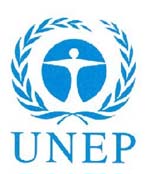News
Noted with Interest, July 2008
Aug 01, 2008
 Here are a few items noted with interest over the past month:
Here are a few items noted with interest over the past month:
- Land Degradation on the Rise
 A quarter of the world’s population depend on land that is being degraded—20 percent of all cultivated areas; 30 percent of forests; 10 percent of grasslands. The primary culprit is poor land management, and the consequences are dire—for populations and for the environment. (From the Food and Agriculture Organization (FAO) of the United Nations)
A quarter of the world’s population depend on land that is being degraded—20 percent of all cultivated areas; 30 percent of forests; 10 percent of grasslands. The primary culprit is poor land management, and the consequences are dire—for populations and for the environment. (From the Food and Agriculture Organization (FAO) of the United Nations)- Price Surge Driving Some Countries Close to Tipping Point—IMF
 “The impact of surging oil and food prices is being felt globally but is most acute for import-dependent poor and middle-income countries confronted by balance of payment problems, higher inflation, and worsening poverty, a new IMF study warns.” The study neglects to discuss the extent to which the predator “aid” policies of the IMF have contributed to—even caused—those problems. (From the International Monetary Fund)
“The impact of surging oil and food prices is being felt globally but is most acute for import-dependent poor and middle-income countries confronted by balance of payment problems, higher inflation, and worsening poverty, a new IMF study warns.” The study neglects to discuss the extent to which the predator “aid” policies of the IMF have contributed to—even caused—those problems. (From the International Monetary Fund)- Global Trends in Sustainable Energy Investment 2008
 Another record-breaking year in global investment in renewable energy, with $148.4 billion of new money raised in 2007, an increase of 60% over 2006. Most is in wind power, but increasingly capital is moving toward next-generation technologies such as cellulosic ethanol, thin-film solar technologies, and energy efficiency. New coal-fired plants are stalled and banks are incorporating "Carbon Principles" into their lending guidelines. Investment in renewables is expected to rise to $600 billion annually by 2020.
Another record-breaking year in global investment in renewable energy, with $148.4 billion of new money raised in 2007, an increase of 60% over 2006. Most is in wind power, but increasingly capital is moving toward next-generation technologies such as cellulosic ethanol, thin-film solar technologies, and energy efficiency. New coal-fired plants are stalled and banks are incorporating "Carbon Principles" into their lending guidelines. Investment in renewables is expected to rise to $600 billion annually by 2020.
The race is on.
(From the United Nations Environment Programme, Sustainable Energy Finance Initiative.)- World and Economic Social Survey 2008: Overcoming Economic Insecurity
 Economic insecurity resulting from adverse events can threaten middle-class lifestyles in advanced countries and produce devastating social disruption in needier regions. While some argue that such forces are beyond our control, this survey “offers a different perspective. What is needed is a strong ‘social contract’ to help secure the spaces within which individuals, households, and communities could pursue their day-to-day activities with a reasonable degree of predictability and stability, and with due regard for the aims and interests of others.” In other words, let’s confront this problem All Together Now. For a stark look at how adverse natural and economic events are exploited now in a global predatory environment, read The Shock Doctrine: The Rise of Disaster Capitalism by Naomi Klein. (From the United Nations Development Policy and Analysis Division.)
Economic insecurity resulting from adverse events can threaten middle-class lifestyles in advanced countries and produce devastating social disruption in needier regions. While some argue that such forces are beyond our control, this survey “offers a different perspective. What is needed is a strong ‘social contract’ to help secure the spaces within which individuals, households, and communities could pursue their day-to-day activities with a reasonable degree of predictability and stability, and with due regard for the aims and interests of others.” In other words, let’s confront this problem All Together Now. For a stark look at how adverse natural and economic events are exploited now in a global predatory environment, read The Shock Doctrine: The Rise of Disaster Capitalism by Naomi Klein. (From the United Nations Development Policy and Analysis Division.)- Using Financial Innovation to Support Savers: From Coercion to Excitement
 As I’ve had cause to note in other entries on ATN (Going Under: A Nation in Debt; Brother, Can You Spare a Dime?), thrift is a dying art in America, with savings rates moving into the minus figures. If you’re determined to reverse this course, and get yourself into a savings mode by hook or by crook, this paper from the Harvard Business School Working Knowledge forum can help. It provides a spectrum of savings strategies, from coercive means requiring extensive governmental involvement, to fun and exciting methods you can engage in entirely on your own. Worth a look.
As I’ve had cause to note in other entries on ATN (Going Under: A Nation in Debt; Brother, Can You Spare a Dime?), thrift is a dying art in America, with savings rates moving into the minus figures. If you’re determined to reverse this course, and get yourself into a savings mode by hook or by crook, this paper from the Harvard Business School Working Knowledge forum can help. It provides a spectrum of savings strategies, from coercive means requiring extensive governmental involvement, to fun and exciting methods you can engage in entirely on your own. Worth a look.- 2008 State Fact Sheets
 “The moral test of government is how that government treats those who are in the dawn of life, the children....” [Hubert Humphrey] Find out how your state government has treated your state's children in this statistical report from the Child Welfare League of America (CWLA). Get the numbers on abuse, family situations, poverty and income, health, education, and other facts. Fact Sheets also available back to 2000.
“The moral test of government is how that government treats those who are in the dawn of life, the children....” [Hubert Humphrey] Find out how your state government has treated your state's children in this statistical report from the Child Welfare League of America (CWLA). Get the numbers on abuse, family situations, poverty and income, health, education, and other facts. Fact Sheets also available back to 2000.
Copyright © 2008 All Together Now.